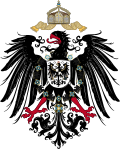Henning Eichberg
This article needs additional citations for verification. (June 2020) |
Henning Eichberg | |
|---|---|
| Born | 1 December 1942 Schweidnitz, Province of Lower Silesia, German Reich |
| Died | 22 April 2017 Odense, Denmark |
| Academic work | |
| Discipline | history and sociology |
| Institutions | University of Southern Denmark |
| Main interests | body culture studies |
Henning Eichberg (b. 1 December 1942 in
Henning Eichberg is the father of the composer Søren Nils Eichberg.
History of behaviour and philosophy of body culture
Eichberg received his academic degrees in the field of
During the 1970s, Eichberg studied
In 1987, Eichberg co-founded the Institut International d'Anthropologie Corporelle (Rennes/France), in 2002 the Centre for the Study of Body Culture (Tsukuba/Japan), and in 2005 the International Network for the Marxist Study of Sport. Eichberg's contributions to "bodily democracy" got impact on the international study and politics of Sport for all. His body-cultural writings were translated and especially influential in Finland and East Asia.
Besides the philosophy of sport and body culture, others of Eichberg's topics have also received international attention.
- History of military technology: Eichberg analyzed the fortification of the Early Modern bastionary type as a configurational expression of social geometry, characterizing the nascent territorial state.
- History of laughter: The cultural change of laughter and smile in industrial modernity followed the change of configurations from popular carnival to the seriousness of sportive strain under the premises of productive achievement.
- Labyrinth: Eichberg described the history of the labyrinth as a configurational change of folk running, play and game, contrasting the straight lines of modern sport facilities.
- Folk shamanicspirit in early popular culture to modern social gift-bringer and revolutionary figure.
Radical writing on folk and nationalism
| This article is part of a series on |
| Conservatism in Germany |
|---|
 |
| This article is part of a series on |
| Conservatism in Denmark |
|---|
 |
In Germany, Eichberg became known by his radical writings about nationalism and the philosophy of "the people" (German Volk, Nordic folk).
In his youth, Eichberg engaged on the radical
During the 1970s, Eichberg dissociated himself from his earlier right-wing positions. He expressed self-critique against the "Eurofascism" of his youth and turned towards
Towards ecology and socialism
During the mid-1970s, Eichberg turned to
Eichberg contributed between 1980 and 2002 to the journal Wir Selbst
After his emigration to Denmark in 1982, Eichberg engaged in Danish socialist milieus, held philosophical courses in socialist summer camps and contributed to left-wing periodicals. Eichberg was appointed as member of the cultural commission of the
Eichberg was especially active in the milieu of Danish People's Academies (folke-højskoler), which relate themselves to the democratic revival of 1848 and the romantic
Critique and controversies
In the field of body culture studies, Eichberg's theory of the specific modernity of sport as a pattern of productivity was met by critique from the mainstream of sport history. German sociologists of the established "sport development aid" (Sporthilfede:Stiftung Deutsche Sporthilfe) also opposed his critique of "sport export" and his studies in popular games, the promotion of traditional games being described as Third World romanticism.
In Germany, Eichberg became politically controversial because of his involvement in the "
Critics from the right wing accused Eichberg of overstating the structural contradictions between the state and the people. By giving priority to the "
In Denmark, leaders of the
, deprived the institute in 2003 of public funding, which it had received during 25 years, and entered into a sharp debate with Eichberg in the media.Bibliography
Eichberg published about 50 books, most of them about the history and
- Der Weg des Sports in die industrielle Zivilisation. [The way of sport into industrial civilization, German] Baden-Baden 1973
- Militär und Technik. [Military and technology, German] Düsseldorf 1976
- Leistung, Spannung, Geschwindigkeit. [Achievement, suspense, speed; German] Stuttgart 1978
- Nationale Identität. [National identity, German] München 1978
- Festung, Zentralmacht und Sozialgeometrie. [Fortification, central power and social geometry; German] Köln 1989
- 身体文化のイマジネーション: デンマークにおける「身体の知」 [Imaginations of body culture, Japanese] Tokyo 1997
- Body Cultures. London 1998
- The People of Democracy. Århus 2004
- Bodily Democracy. Towards a Philosophy of Sport for All. London 2010
- Minderheit und Mehrheit. [Minority and majority, German] Münster 2011
- 身體文化研究 -由下而上的人類運動現象學。莊珮琪、李明宗譯。新北市:臺灣身體文化學會、康德出版社。 [The Study of Body Culture – Towards a Bottom-Up Phenomenology of Human Movement, Chinese] Taipei 2015
- Questioning Play. London 2016
